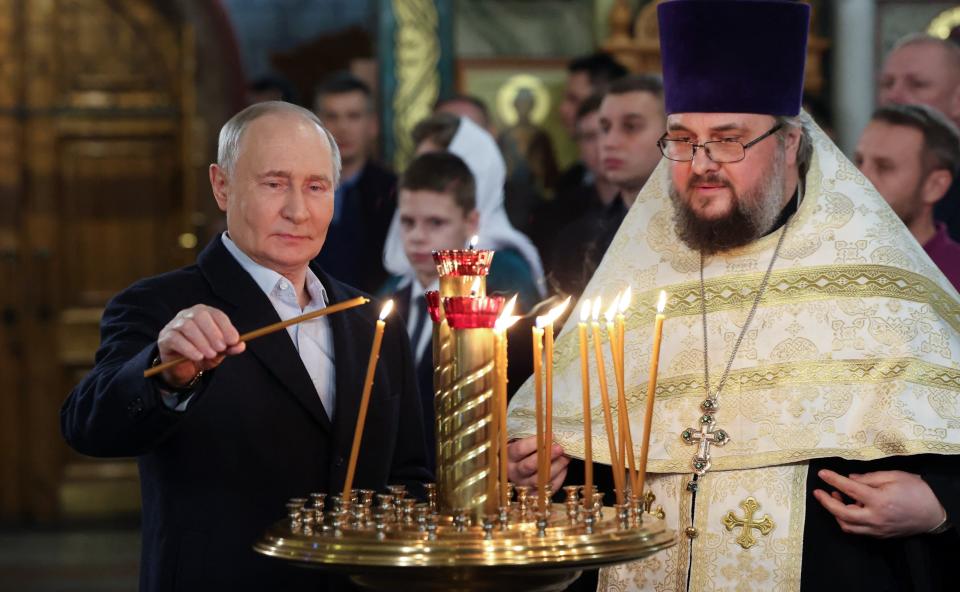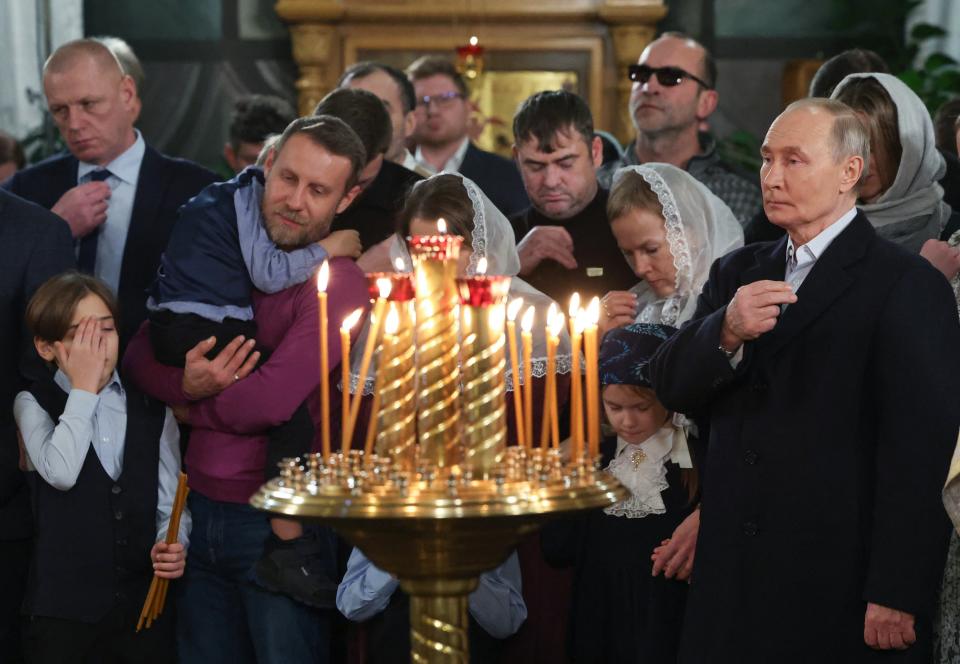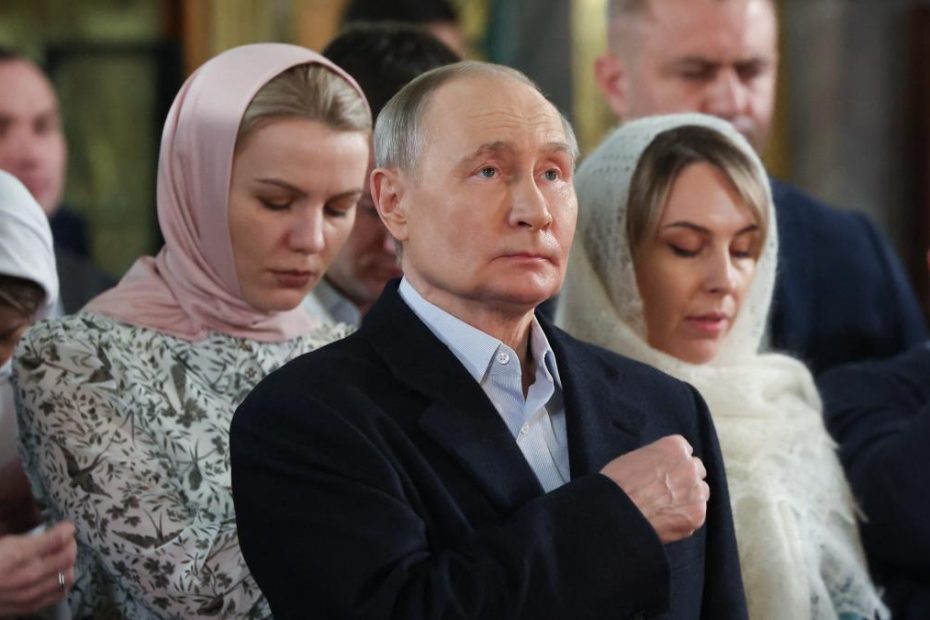Until recently, Vladimir Putin insisted, at least publicly, that he did not want a personality cult. Not anymore. During the last three years of the war he started in Ukraine, he embraced it.
At his annual press conference last month, Putin nodded with a serious expression and bragged about improving his skills – more than ever happy to talk about himself. His lips pressed into a sour grimace, he described himself: “I joke less now and I've almost stopped laughing.”
The serious Putin even spoke at Orthodox Christmas, which takes place in January, about the war in the country's main church, the Cathedral of Christ the Savior. The Kremlin informed Russians that Putin had asked the country's highest priest to “engrave his own initials” on chains for the crosses carried by soldiers.

Putin attends the Christmas service at St. George's Church in Moscow. / Getty Images
Patriarch Kirill and Putin were filmed together: “Here are crosses, as well as other chest icons, with the image of the Holy Grand Duke Vladimir, equal to the apostles, the founder of our Russia, our state, the one who defended our homeland with a sword in his hands, and which is now also such a symbol of the collection of the Russian land. But in addition, he is also your heavenly patron,” the priest said, addressing Putin. “So I think this will be doubly understandable and pleasant for all soldiers who receive these images,” Kirill continued, before inaugurating the chains.
Russian Kremlinologists were shocked. The president's initials on crosses for soldiers were certainly a sign of an entirely new development. “We couldn't even imagine that something like this would happen before,” Putin's former speechwriter, Abbas Galliamov, said in an interview with The Daily Beast on Saturday. “Putin was previously much more down-to-earth, he did not pretend to have a saintly status.” Galiamov worked in the Kremlin government and the Russian government from 2008 to 2020. It's true that Putin has changed: Thirteen years ago he refused to use his face on billboards for his 2012 presidential campaign.
Russian nationalists and ideologues have been pushing for Putin's personality cult for years. Kremlin administrator Vyacheslav Volodin essentially declared this line of state policy in October 2014: “If there is Putin, there is Russia; There is no Russia today if there is no Putin.”

Putin asked the country's highest priest to engrave his own initials on chains for the crosses carried by soldiers. / Getty Images
The Russian Orthodox Cossack Union installed a monument of Putin, the “Russian Tsar”, in Saint Petersburg shortly after the annexation of Crimea. Appearing like a Roman emperor, the bronze Putin has a naked torso and a toga draped over his shoulders. Putin showed himself modest and rejected all attempts by the Russians to declare him the new Tsar. “This is not true, someone else could be called a tsar. I work every day, I don't rule,” Putin said in 2020. But that same year, the Russian Orthodox Church formally allowed an image of Putin's face to be placed on the wall of the newly built Cathedral of the Armed Forces. “The more the propaganda and the church insisted on his divine qualities, the more he believed he had them – so he must have said to himself: even Jesus Christ didn't leave any signatures, but I did,” the Russian propaganda analyst said Ilya Shepelin to The Daily Beast. . “We are closely watching how the presidential administration organizes and organizes Putin's visits to the regions, where his fans tell him that everyone loves him. He sees nothing else.”
The Russian political regime is changing and accepting a greater, crucial role for the Orthodox Church. Priests and bureaucrats rush forward with new initiatives. Orthodox priests are assigned to work in schools and universities. Earlier this week, Metropolitan Yevgeny of the Russian Orthodox Church proposed appointing priests to work with journalists at all media outlets in the Ural Mountains region. “Why not appoint an interesting, smart, profound, kind priest, who would help build this bridge between the life of the Church and the lives of those people who consider themselves children of the Russian Orthodox Church, and also as some media.”
Olga Bychkova, a longtime Kremlin observer, says Putin's new turn to references to divine qualities is driven by his desire to remain popular. “He needs to find new points to support himself, to make more new promises, not only to the country, but also to convince himself,” Bychkova told The Daily Beast in an interview on Saturday. “Both Putin and Trump are very similar. They turn their obscure ideas into popular points. But more and more people will find Putin's efforts ridiculous. It will become clear that this is just an old man's idiocy.”

